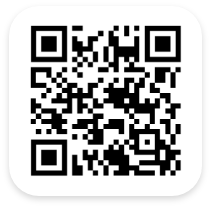New QR Feature Makes Inventory and Asset Tracking more Efficient

How Using QR Codes for Inventory and Assets will Improve Efficiency
Chicago, IL: QR codes are 2D matrix barcodes. Compared to traditional 1D barcodes, QR codes are a lot more powerful, versatile, and configurable. Using QR codes allows you to hold about a hundred times the information that the average 1D barcode can, making them far more efficient in relaying information to whoever scans them. This is what makes QR Inventory Management and Asset Tracking one of the most cutting-edge forms of tracking.
Our new QR code feature comes with many new functionalities like:
- Allowing people who don’t use the system to scan the codes
- Including more relevant data in the code
- Resizing and modifying the shape of the codes
- And more!
Each of these functionalities comes with multiple additional benefits. For example, resizing and modifying the shape of your QR codes allows you to fit them on smaller items. Also, you can include relevant data that is important to your business like part number, serial number, product description, expiration date, and more in the QR codes on items that you send out or internally at your warehouses for greater visibility. Keeping in mind that a traditional barcode could only hold inventory or asset part numbers, you can see far more information at a glance.
QR codes for inventory and asset tracking are an excellent option because they are more resistant to error. In addition, you can still scan them after receiving damage or fading in most cases. This contrasts with the old line barcodes that don’t scan after being slightly altered.
ASAP System is a market leader in Inventory System and Asset Tracking Solutions that use Barcode technology with mobile Barcode scanners, smartphones, and tablets. They help improve profitability by eliminating manual data entry, paper files, and forms and by automating record keeping. With their system, businesses know 24/7 how and where their Assets and Inventory are received, stored, used, and disposed of in a warehouse, field, or office. They have offices in California (headquarters) and Chicago.

